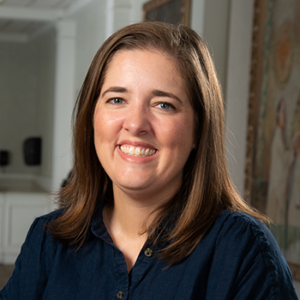 By Katie Murray.
By Katie Murray.
Today is Christ the King Sunday. A relatively recent addition to the liturgical calendar, it was instituted by Pope Pius XI in 1925. Pius wrote in his encyclical “Quas primas” (In the first), addressing the new feast day, that God “must reign in our minds … in our wills … in our hearts … in our bodies.”
When Pius XI instituted the day, he did so in response to the growing secularization of the time. The feast has a very eschatological bent, pointing us not to our present reality, but to what we trust and hope is to come.
I wonder how the current heartache in our world impacts each of our ability to connect with this theological tenet of our faith. What does it mean to sing “Crown Him with Many Crowns” at the end of 2023? Do war, division, illness and grief cause you to cling to the promise embedded in these songs? Or do you feel that promise slipping through your fingers? Does it feel like you are proclaiming truth or foolishness?
Perhaps there is an answer for us in what we will experience in the upcoming weeks. Christ the King Sunday serves as the close of the liturgical year, and next week we begin a new church year with the first Sunday of Advent. This week we proclaim the sovereignty of Christ over all of creation, and next week we will once again await the arrival of an infant boy, born in a lowly stable, with no crown to be found to place upon his head. Today we sing “All Creatures of our God and King,” and a few Wednesdays from now our children will remind us in their nativity play that instead of the pomp and circumstance that accompanies a royal birth, the first to witness the new King were animals in a barn.
Today the church calendar ends with the proclamation of Christ’s inevitable reign, but it opens with anticipation of what is to come and how it will forever shape and change our world. Both proclamations, it turns out, involve a great deal of hope and faith. May we join together in singing their truth.
